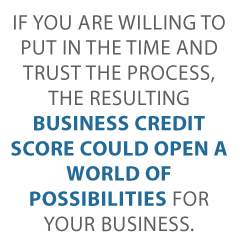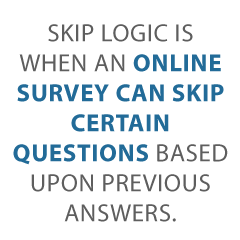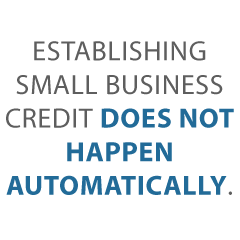
New Business Credit Score Do’s and Don’ts
Breathe Life into Your Business with Your New Business Credit Score
Are you trying to get a new business credit score? Looking to ditch an old one and get a bright, shiny new one? Maybe you don’t have one at all yet and you need to know how to get one. Never fear. We have all the dos and don’ts to help you build a business credit score either from scratch, or by improving old, dented one.
Why Do I Need a Business Credit Score at All?
This is actually a pretty common question. A surprising number of people do not realize that their business can have credit that is not related to their personal credit. The fact is, not only can your business have its own credit, but it should. The reasons for this are many. Most importantly, keeping your business credit and personal credit separate protects both your personal and your business finances from being affected by each other.
In addition, business credit cards often have higher limits, meaning they can handle the higher spending needs most businesses have. If you tried to finance all of your business expenses on personal credit cards, you would likely keep balances at or near your personal credit limits. This would increase your debt-to-credit ratio, which in turn has a negative affect on your personal credit score.
So, what are the major dos and don’ts for a new business credit score?
Discover our business credit and finance guide, jam-packed with new ways to finance your business without emptying your wallet.
Don’t Operate Under Personal Information
If you are running your business as a sole proprietorship, or a partnership, you are going to have a problem getting a business credit score. If your business has the same phone number, address, and email address as you, that’s even more of an issue.
Your business has to be separate from you, and here is why. If you do not ensure your business is recognized as a separate entity from yourself, all of your business transactions are just going to go straight to your personal credit report. Here is how to keep that from happening.
Get Incorporated
The first step is to incorporate. This is the first step to separating your business credit from your personal credit. You have a few options.
- C Corp– This is the most definitive separation, but it is also the most complicated and expensive. Before choosing this option, be certain there are reasons other than establishing business credit that it needs to be done. If it isn’t necessary for some other reason, there are other, less complicated, and less costly options.
- S Corp– This option basically offers the same separation as the C Corp, but taxes are paid at the personal level, rather than requiring the business to be taxed as well, resulting in double taxation. It is also cheaper than incorporating as a C Corp. If you aren’t required to file as a C corp, this is a good alternative.
- LLC– forming a Limited Liability Corporation results in less liability, thus the name, and offers enough separation to serve the purpose of establishing business credit. If you are not required to be a C Corp or S Corp, this is the easiest and most cost-effective way to create the separation of business and personal credit that you need.
Separate Contact Information
Your business needs its own phone number. This way, when you apply for credit, you can enter contact information that is separate from your own. When information is reported to agencies, sometimes the phone number is an identifying factor. If you and your business share a number, that just decreases the level of separation. The business phone number should be from a toll-free exchange.
There also needs to be a separate business address and email address. They cannot be the same as your personal address and email address. Also, the business email address should not be from Yahoo, Gmail, or any other free email service. It should have the same URL as your professional website. Don’t have a professional website? You need to get one of those too.
Be sure your business contact information is listed in the directories under the business name.
Business Bank Account
If you are running all of your business transactions through your personal bank account, stop. You need a dedicated business bank account that you use for all business transactions. This helps with the separation of your business from yourself, but it will also help you keep business expenses separate from personal expenses for ease during tax time.
Don’t Use All of Your Available Credit
When building business credit, the first thing you do is work through the credit tiers. The goal is to get as many accounts reporting consistent, on-time payments from your business name as possible. This means you get 8 to 10 accounts in the vendor credit tier, move up and get 8 to 10 accounts in the retail credit tier, and so on through the fleet credit tier, and finally the cash credit tier. You can find out more about the credit tiers and how the business credit building process works here.
While this achieves the purpose of building business credit, it also means you have a lot of business credit out there. Resist the temptation to use it all at once. You have to pace yourself. You want to make payments on each account, but you cannot carry balances at or near the limit on all those cards. If you do, your debt-to-credit ratio will be extra high, resulting in a negative impact on your credit report.
Do Get and EIN and a DUNS Number
These are identifying numbers for your business. You must have both of them to get business credit.
EIN
This is an identifying number for your business that functions much as your SSN does for you personally. Once you have it, you will use it in place of your SSN when you apply for credit in the name of your business. Your SSN should only be used for identity verification for fraud prevention. You may have to provide your birthdate for this reason as well, but not for the purpose of checking credit.
If you follow the other steps for establishing business credit and skip this one, accounts could end up on both reports. You don’t want that.
The process of applying for and EIN is easy. The IRS has an online form, and as soon as all the information is verified you receive your number. It typically happens almost immediately.
Get a DUNS Number
Dun and Bradstreet (D&B) is the largest and most widely used business credit reporting agency. They issue each business on file a 9-digit DUNS number, and you will not have a business credit file with them until you have this number. Application is easy and free on their website. Beware, they will try to sell you a lot of different products, but you only need the DUNS number and it is definitely free.
Do Work with Members of the Small Business Finance Exchange
Working with SBFE members can do more than help you get a new business credit score. Here are 4 ways working with members of the Small Business Finance Exchange can help your business, including that credit score you are working on. Find out more about the Small Business Finance Exchange and what they do here.
Build Business Credit
When you do business with members of the Small Business Finance Exchange, you know your information is being reported. That builds business credit. How do you know if your lender or vendor is a member? Ask them. If they are not, considered mentioning that they become a member. There are enough members in the network however, that it should not be hard to find one.
Grow Your Business
By working with SBFE members, you know that when creditors receive your information, they get a complete credit picture. If you are making your payments and working to build strong business credit, the additional data they receive can only help you.
Discover our business credit and finance guide, jam-packed with new ways to finance your business without emptying your wallet.
Increase Funding Options
The data available about your business from the Small Business Finance Exchange could open up additional funding opportunities that may not be available to you otherwise.
Help Making Wise Credit Decisions
If you are a small business that lends money to other businesses and has the ability to report that information, you can join the SBFE yourself. You will gain access to information about borrowers that is available exclusively to members. This information can help you make better decisions about your own business lending.
Do Monitor Your New Business Credit Score
Once you have business credit, you need to watch it to ensure it stays strong. If you already have a score and want a newer, stronger score, that is even more reason to monitor your credit report. Make certain all accounts are reporting accurate information, and deal with any mistakes as soon as you can.
You can monitor your business credit by getting reports from the credit reporting agencies directly, but it’s pricey. To monitor with D&B go to: www.dandb.com/credit-builder. For monitoring with Experian, visit: www.smartbusinessreports.com/Landing/1217/. At Equifax, you can monitor your account at: www.equifax.com/business/business-credit-monitor-small-business. Experian and Equifax cost about $19.99; D&B ranges from $49.99 to $99.99.
Another option is to use a credit monitoring service like the one offered by CreditSuite. We can help you monitor business credit at Experian and D&B for only $24/month.
None of It Matters If You Don’t Make Your Payments on Time
Whether you are starting from scratch or trying to do some repair work to get a new business credit score, none of it matters if you do not make your payments on time. This is an absolute necessity. If you are inconsistent or late with payments, you will not only undo any good, but you may actually end up in worse shape than before.
You have to have a plan in order to be successful with you new business credit score.
Here are some bonus Dos and Don’ts to help with this:
- Do budget for credit payments. It is easy to forget this or let it get out of control quickly. As you grow your business credit score, you are going to have a lot of new credit available. You already know you do not have to use it all, but you have to be sure to budget and plan to pay for what you are using.
- Do know how much you can handle in debt payment each month before taking on new debt. If you are considering taking on debt payments of $300 per month but you only have $200 per month in cash available for payments, you are going to have a problem.
- Don’t use debt to pay debt. Of course, there could be times, such as 0% interest on balance transfer opportunities, that it may be useful. Make it an exception rather than the rule however. It isn’t a good habit to get into.
Discover our business credit and finance guide, jam-packed with new ways to finance your business without emptying your wallet.
- Do use credit wisely. Yes, you need the accounts in the beginning for your new business credit score to grow, but there is no need to buy things you do not need. If what you are buying on credit will not grow or expand your business, leave it alone. It’s ridiculous to buy 7 boxes of latex gloves on credit if you will not use them in the course of your regular business.
- Don’t stop monitoring your credit. Just once doesn’t do it. Credit monitoring needs to be an ongoing process, not just to catch mistakes, but so that you know what your credit score can handle at any given time.
- Do consider automating payments. Most creditors offer some sort of direct draft option. Just be sure the funds are there!
Getting and Keeping a New Business Credit Score is Vital for Your Business
If you have bad business credit, or no business credit at all, you definitely need a new business credit score. It won’t happen on its own however. You have to be intentional. It isn’t hard, but there is a definite process that takes some time. If you are willing to put in the time and trust the process though, the resulting business credit score could open a world of possibilities for your business.
The post New Business Credit Score Do’s and Don’ts appeared first on Credit Suite.











